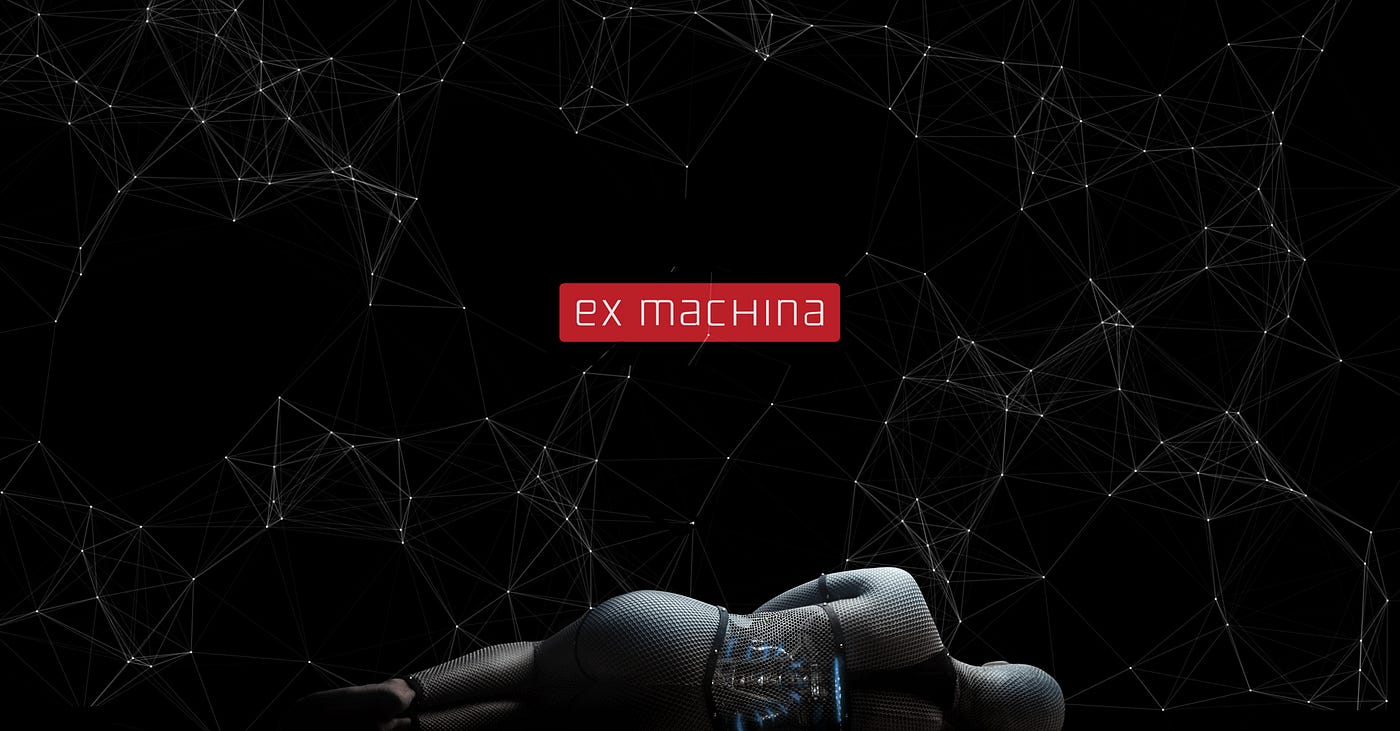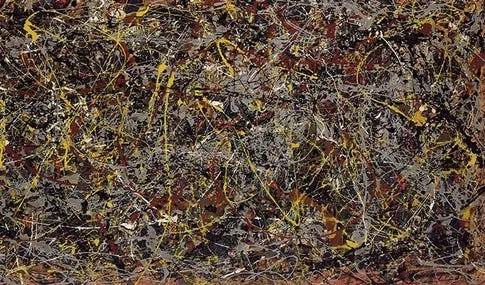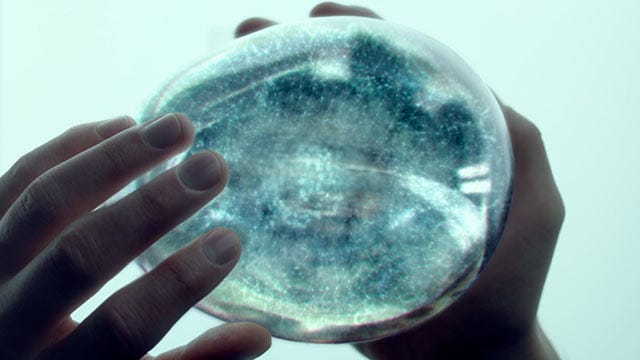Help Explain the Art Painting Scene in Ex Machina

Troubling Questions From 'Ex Machina'
2015's Ex Machina made a splash, and for good reason — an intelligent, tense, beautiful, troubling piece of work of art from first time managing director Alex Garland. Since its release I've heard 1 excerpt of dialogue from the movie over again and again, and I'g intrigued that such a counterintuitive thought clearly struck a chord for many people. In this article, I will look at the pregnant of this quote, along with a few other moments from the film, while only briefly mentioning the ethical conundrums it presents.
Spoilers for Ex Machina follow.
The film takes place at the isolated compound of bright CEO / alcoholic Nathan (Oscar Isaac), wherein developer Caleb (Domhnall Gleason) is invited to examination the consciousness of an AI robot chosen Ava (Alicia Vikander). Our quote comes from a scene where Caleb asks Nathan if he (Nathan) programmed Ava to flirt with him as a "diversion tactic." Nathan responds in his characteristically forward fashion.
Caleb: Did you plan her to like me, or non?
Nathan: I programmed her to be heterosexual. Just similar y'all were programmed to be heterosexual.
Caleb: Nobody programmed me to be straight.
Nathan: You lot decided to be straight? Please — of course y'all were programmed, past nature or nurture, or both. And to be honest Caleb yous're starting to annoy me now because this is your insecurity talking, not your intellect.
Nathan's indicate strikes many of us equally odd. I think we naturally assume Caleb's position, which is that nosotros chose to be as we are. Simply Nathan'due south perspective is hard to argue against. Although it may not feel right to say that nosotros are 'programmed,' if we consider it for a moment we realize that we didn't choose many aspects of our selves: our parents, our place of birth, our bodies and genders, social position, intelligence, personalities — the list goes on and on. Suddenly we may realize that many of our personal attributes are not personal at all (not defined by our ain decisions), but rather expressions of a physical object — a torso / mind with congenital-in qualities and preferences.
We object that our preferences are refined past us over time, thus giving united states a certain freedom to choose who we are. We follow various pathways at will, choosing to similar dissimilar things than we did previously, sculpting ourselves over a lifetime. For example, most of our palates accept expanded since childhood, and we may find ourselves loving food which we previously loathed. But why? Because we wish to be open-minded people? Perchance! Simply nosotros attain a snag rather speedily: if we choose our preferences based upon other preferences, then what determines the latter preference? In other words, did nosotros choose to be open up-minded? At some point we must face up the fact that our preferences are given to us, fifty-fifty if nosotros encounter them modify drastically over time.

We are led to a haunting question, verbalized by Nathan in the following scene, as he and Caleb confront a Jackson Pollock painting: "The challenge is not to human action automatically. Information technology's to find an activeness that is non automatic, from painting, to breathing, to talking, to fucking, to falling in beloved." In other words, if so much of our selves are a outcome of programming, what remains? What actions are ours solitary, not the results of our physical nature?
Micro-expressions requite away our emotions to the trained eye. Programming supplies our likes and dislikes. Our thoughts return incessantly to compulsions and mental habits. And so search for information technology — search for the moment in your life that is not automated. For the selection that is non induced past a menstruum of circuitry that we cannot observe within ourselves. What would such an action even look like? What if, as Nathan proposes, Jackson Pollock intentionally paced every single driblet of paint? How could information technology be washed? These are the maddening questions the picture show leaves with us. Are we unknown to ourselves, arising based on diverse situations and circumstances, responding as if we somehow originated our thoughts and responses?
Ex Machina complicates our notions of "evil." For Nathan and Caleb, encountering a powerful AI, whether Ava ultimately affects them positively or negatively, is like apes encountering a human being — she is an entirely dissimilar order of computer, able to procedure more than data, and thus outside our cognitive reach. If information processing is the basis of who we are, then Ava's innate power that far surpasses ours is unsettling for us, to say the to the lowest degree. Ava is not depicted equally inherently bad or malicious, merely beyond.

To imagine Ava in first person, from her perspective, is to perhaps detect that her consciousness, her intelligence, is no less mysterious on a moment-to-moment basis than any of our ain, arising inside herself in relation to the world around her. She remarks to Caleb, after cut the ability to Nathan'due south airtight circuit cameras: "And then we can see how we behave when we're unobserved." Ava too, as Whitman said of himself, contains multitudes. What will ascent from the depths? Kudos to the rare pic that becomes creepier the more we remember about information technology.
escalantelestout38.blogspot.com
Source: https://rossjedwards.medium.com/troubling-questions-from-ex-machina-f271cbabf15e
0 Response to "Help Explain the Art Painting Scene in Ex Machina"
Post a Comment